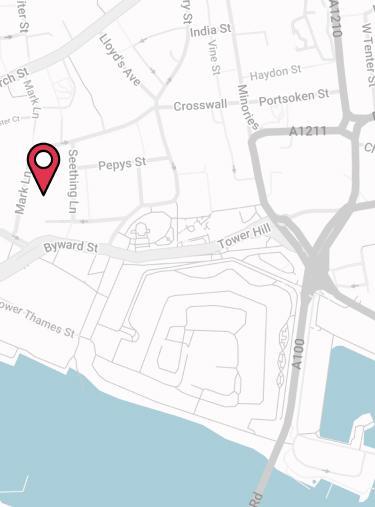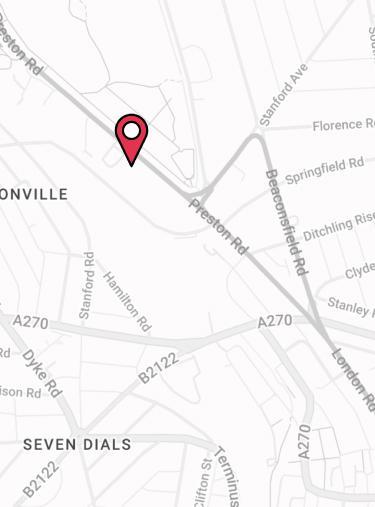
Do I Need Inheritance Tax Insurance?
As a single individual, when you die and leave an estate – the total monetary value of most of the things you own on the date of your death – worth more than £325,000, your estate pays inheritance tax (IHT) at 40% on anything above the £325,000 nil-rate band threshold.
This can take a considerable bite out of anything you were planning to pass on to your loved ones.
IHT Reliefs & Allowances
There are various reliefs and allowances available to reduce your inheritance tax bill. For instance, if you’re married or in a civil partnership and leave your entire estate to your surviving spouse / civil partner, the survivor can up to double their £325,000 nil-rate band allowance to £650,000 before any inheritance tax is due.
There’s also an additional allowance for people passing on their family home, known as the main residence nil-rate band, which will be worth £175,000 per person by 2020/21 if you’re leaving an estate with a main residence in that is passing to direct descendants.
Inheritance Tax Insurance Policies
Despite the reliefs and allowances available, it’s still the case that some estates — particularly larger estates — will have to pay inheritance tax.
If you think you might have to pay inheritance tax, the first thing to do is calculate your inheritance tax liability. One option would then be to purchase inheritance tax Life Insurance to cover the bill. This usually takes the form of Whole of Life Insurance.
Alternatively, some people try and avoid inheritance tax by giving away substantial proportions of their wealth before death.
However, if you die within 7 years (and potentially up to 14 years if you’ve previously made gifts into certain trusts) of making the gift, there may be inheritance tax to pay on that gift.
Potentially Exempt Transfers
Such gifts, assuming they’re made to individuals and not into most trusts, are known as potentially exempt transfers (PETs). If you die within this period, the gift may become a ‘failed PET’ and inheritance tax usually becomes due on it.
Tax is typically the responsibility of the recipient of the gift in such a situation, so when giving away gifts as part of inheritance tax planning, some people prefer to purchase Gifts Inter Vivos Insurance, a series of inheritance tax insurance policies, to cover any potential liabilities.
Having Life Insurance held in trust outside your estate for inheritance tax purposes can be a saving grace for you and your loved ones. Both Whole of Life Insurance and Gifts Inter Vivos cover can be used to provide inheritance tax insurance – which will be right for you depends on your individual needs and circumstances.
Whole of Life Insurance
Whole of Life Insurance does what it says on the tin. It’s an insurance product that will protect you for your whole life and pay out eventually on your death, whenever that may be.
This is opposed to the more common term assurance policies, where the term is fixed for a set period and you only receive a payout if you die within that period.
Although more expensive than a Term Life Insurance policy because the payout is guaranteed providing you keep paying premiums, Whole of Life Cover written in trust will provide a tax-free lump sum on death to act as inheritance tax insurance.
This can be used to pay off any outstanding IHT liability that attaches to your estate.
As the lump sum payout is written into trust, it’s separate from the estate and readily available without having to go through probate. It can then be used to clear HMRC’s inheritance tax bill, unlocking the rest of the estate for distribution as per your wishes (assuming you’ve made a will – otherwise your estate is distributed according to the rules of intestacy).
Work Our Your IHT Liability With Our Inheritance Tax Calculator
Setting up a Whole of Life Insurance policy will require you to roughly know your inheritance tax liability on your death so you know how much cover you’ll need. This can be tricky to work out. Our Inheritance Tax Calculator is a good place to start with this, but sometimes nothing beats speaking to a specialist.
Whole of Life Insurance to Pay Inheritance Tax: Illustration
Harry turns 60 in December 2020. He has an estate worth £750,000, including the home he lives in. Although he never married, Harry has two children to whom he intends to pass down the property he lives in, as well as all of his other assets.
If Harry were to die in the 2020/21 tax year, the inheritance tax bill on his estate would be as follows:
Inheritance Tax on Harry’s Estate | |
|---|---|
Total estate: | £750,000 |
Less nil-rate band | -£325,000 |
Less main residence nil-rate band | -£175,000 |
Taxable estate: | £250,000 | Inheritance Tax Bill: | £100,000 |
On his 60th birthday, Harry retires and decides it’s time to start planning for the future and sorting out his affairs.
In light of this, he decides to take out a Whole of Life Insurance policy on his own life, which will run until the date of his death, whenever that may be. The total sum he insures himself for is £100,000 to cover the full inheritance tax liability on the date of his death, thereby leaving a greater inheritance for his two children.
Whole of Life Cover Pricing | Level of Cover | Monthly Premium |
|---|---|
£100,000 | £185.00 |
We are whole of market insurance intermediary which gives us access to all the leading providers. If you would like a personalised quote to understand how much your own IHT insurance policy may cost please don’t hesitate to use our online quote tool below or pop us a call on 02084327334.
Gift Inter Vivos Policies
To understand gifts inter vivos – which simply refers to gifts given away ‘inter vivos’ or during life – you need to understand a little about inheritance tax on gifts.
A gift can be defined as:
- Any of your assets with a value
- A loss in value when something’s transferred, e.g. if you sell your house to your child for less than it’s worth, the difference in value counts as a gift
- Forgiveness of a loan — if you lend someone money and forgive the debt, their estate has increased and yours has fallen in value, so this transfer of value classes as a gift.
Gifts given away to individuals during your lifetime aren’t classed as exempt from inheritance tax – instead, they’re usually classed as potentially exempt transfers. This means there may be inheritance tax due on them if you give them away within 7 years (and potentially up to 14 years if you’ve also given gifts to certain trusts) of you passing away.
If the total sum you’ve gifted away in the 7 years (and potentially up to 14 years) leading up to your death exceeds your nil-rate band threshold, the onus falls onto the recipient of the gift to pay the inheritance tax bill due.
Taper Relief
During the 7 year window, the amount of inheritance tax due on the gifts you’ve passed down during your life decreases over time until it reaches 0%, as per the table below.
|
Taper Relief on Gifts |
|
|---|---|
|
Years from Gift to Death of Donor |
IHT Rate Applied |
|
< 3 Years |
40% |
|
3-4 years |
32% |
|
4-5 years |
24% |
|
5-6 years |
16% |
|
6-7 years |
8% |
|
7+ years |
0% |
Gifts Inter Vivos Insurance
In these situations, a set of decreasing term policies also known as ‘gifts inter vivos’ policies can be a useful hedge to provide inheritance tax insurance on gifts.
With these policies, the sum assured falls in line with the taper relief available to potentially exempt transfers. This means they provide a specifically-designed way to protect your beneficiaries from a tax bill down the road.
Gifts Inter Vivos Illustration
Imagine Harry from the above example decided he wanted to reduce the value of his £750,000 estate to lower his inheritance tax bill and see his children enjoy his legacy while he’s alive.
He gives a gift of £250,000 to his son John in June 2018 followed by a gift to his daughter Joanna of £250,000 in July 2018. Prior to this he has made no gifts into trusts, although his annual gift exemption had already been exhausted for 2018.
If Harry failed to live for 7 years after making the gifts, they would become ‘failed PETs’ and are subject to inheritance tax. In cases where gifts have been made from an estate and the donor subsequently dies before the required number of years, the deceased’s nil-rate band allowance is applied to the gifts before it can be applied to an estate (as the gifts were made first).
Assume Harry died less than 3 years after making the gifts. The £250,000 left to his son John in June 2018 would attract no inheritance tax, as it was below the £325,000 inheritance tax threshold. However, applying the nil-rate band to the first gift to John only leaves £75,000 of Harry’s nil-rate band remaining to apply to the gift to Joanna.
This means Joanna faces inheritance tax on £175,000 of her gift, which will be charged at 40% and comes to £70,000.
To protect Joanna from this bill, Harry decides to take out a set of decreasing Life Insurance polices — gifts inter vivos insurance — for £70,000 to fall over time in line with the taper relief available on the gift. That way, if he failed to live for 7 years after making the gift, the insurance would pay out and Joanna wouldn’t have to fund the inheritance tax bill herself.
Need Inheritance Tax Advice?
If you’re thinking of making gifts from your estate that you’re worried could be subject to inheritance tax, don’t hesitate to get in touch. We can discuss the gifts you’re considering making to see if inheritance tax is applicable and, if so, discuss your options to reduce your inheritance tax bill.
If you would like to discuss your options with one of our specialists please do not hesitate to give us a call on 02084327334 or email help@drewberry.co.uk.
- You’ll speak to a dedicated specialist from start to finish
You will speak to a named specialist with a direct telephone and email. No more automated machines and no more being sent from pillar to post – you’ll have someone to speak to who knows you. - Benefit from our 5-star service
We pride ourselves on providing a 5-star service, as can be seen from our 2274 and growing independent client reviews rating us at 4.92 / 5.
- Topics
- Inheritance Tax
- Retirees
Contact Us
125-135 Preston Road
Brighton
BN1 6AF
Cookies
Drewberry™ uses cookies to offer you the best experience online. By continuing to use our website you agree to the use of cookies including for ad personalization.
If you would like to know more about cookies and how to manage them please view our privacy & cookie policy.








